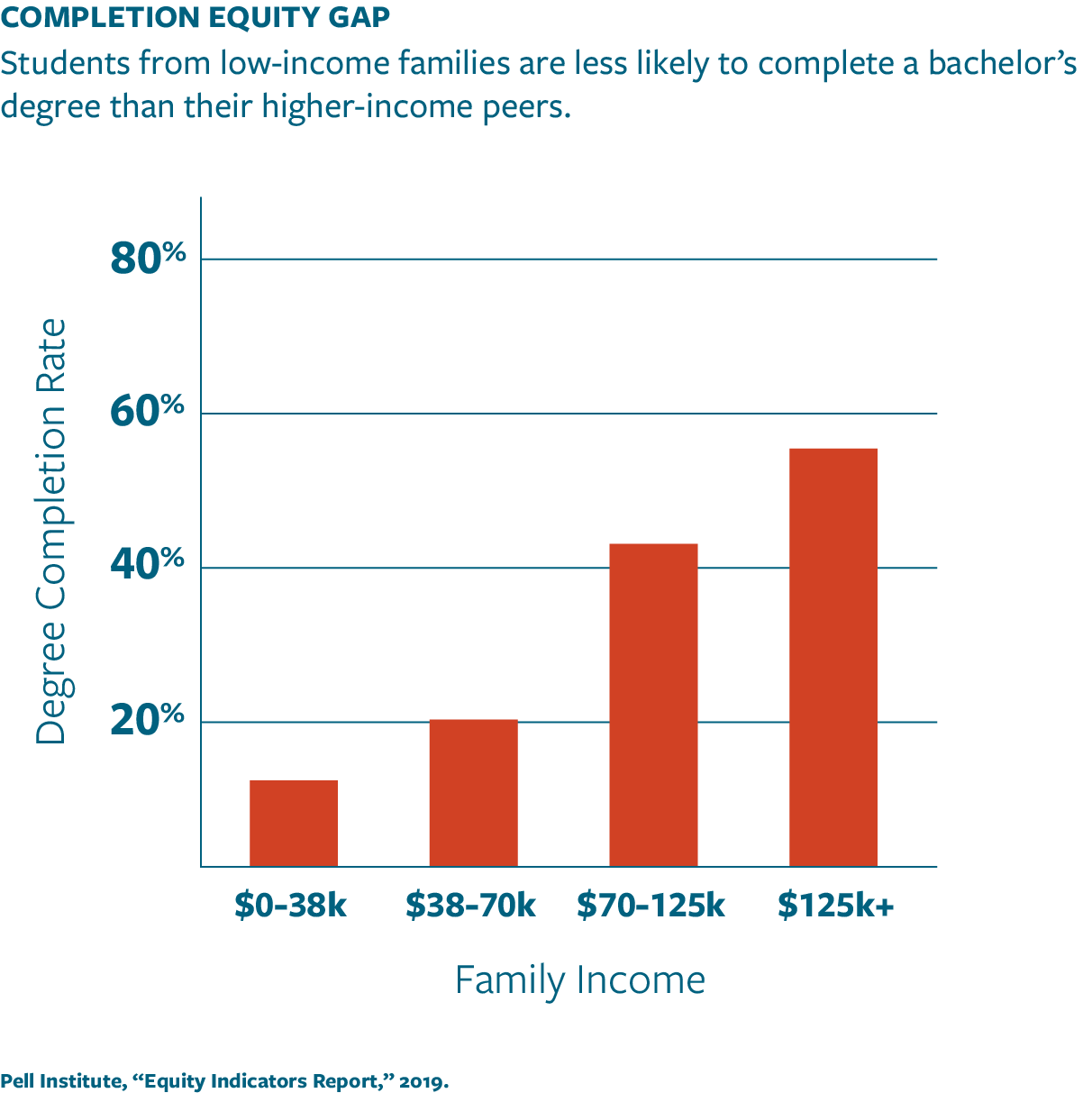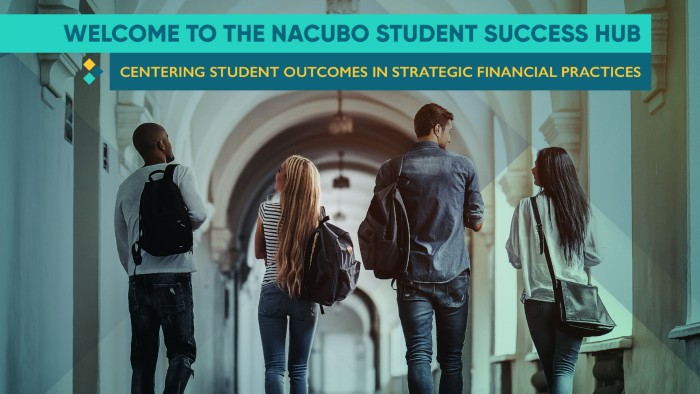
How We See the Problem
Today’s learners often aren’t well served by the educational systems that were built years ago for more traditional students. Now students are often older, more diverse, working one or more jobs, raising families, and struggling to make ends meet.
Colleges and universities are complex, and often don’t have a student-centric approach to course offerings or availability, advising and other institutional policies. The problem shows in the equity gaps in completion rates: just 11% of low-income students graduate with a bachelor’s degree. Almost 6 times as many students — 58% overall — from higher-income households graduate.

Our Three Investment Priorities
Grants to Remove Structural Barriers to Success
NISS Support for Georgia Colleges
Exploration
This grant supports Georgia State University's National Institute for Student Success (NISS) in working with a cohort of institutions to implement a comprehensive set of reforms. Six institutions, comprising both two and four-year colleges and universities, will complete extensive diagnostics, identify high-impact practices, and receive coaching and implementation support from NISS.
Ohio Strong Start in Science (OhioSSS)
Exploration
This grant supports the Ohio Department of Higher Education in designing and implementing a corequisite model for entry-level science courses at 17 colleges and universities. Redesign efforts will focus on courses with disproportionately high failure rates for learners from low-income backgrounds, women, and learners of color who are underrepresented in high-demand STEM career fields.
Talent Strong Texas Pathways for Multilingual Learners of English
Exploration
This grant supports the Texas Community College Education Initiative in aligning pathways from English as a Second Language (ESL) programs to community college credentials, including industry-based certifications, vocational certificates, and academic degrees. Texas community colleges will address placement and curricular structures that have been barriers to success for multilingual learners of English seeking to transition from ESL to workforce training or academic programs.
Talent Strong Texas Pathways: Student Supports and Belonging HB8 Implementation
Exploration
This grant supports the Texas Success Center in developing and implementing holistic basic needs and support services at Texas community colleges. This statewide initiative aims to help colleges strengthen supports for learners to ensure they complete credential of values in alignment with the state’s new funding model established by House Bill 8.
Innovations in Proactive Communication and Support for STEM Success
Validation
This grant supports the Annenberg Institute for School Reform at Brown University in assessing the impact of a tech-enabled, academic support innovation targeting students’ STEM gateway course success and persistence at Georgia State University.
Building a National Network of First-Generation Data Savvy Institutions
Exploration
This grant supports the National Association of Student Personnel Administrators in providing technical assistance to 60 colleges and universities through its Center for First-Generation Student Success. The Center will help institutions develop a definition of first-generation college students and set up data systems to understand how well programs are serving them.
Upper Midwest Collaborative to Address Economic Imperatives
Exploration
This grant supports the Michigan Community College Association (MCCA) and the Ohio Association of Community Colleges (OACC) in providing technical assistance to community colleges addressing economic development opportunities in the Upper Midwest region. Using a regional collaborative approach, MCCA and OACC will work with national partners to create targeted student success strategies to address workforce needs in the region.
Aspen Prize, Higher Education Board Reform, and Increasing Focus on College Leadership
Exploration
This grant supports the Aspen Institute in engaging and training community college boards of trustees in student success practices, supporting research and field building through the Aspen Prize for Community College Excellence, and elevating the importance of college leadership in improving outcomes for learners in community colleges.
Putting Community Colleges at the Center of Innovation Economies
Exploration
This grant supports New America in building a cohort of community colleges and districts across 10 regional sites in the National Science Foundation's Regional Innovation Engines Program, a national effort authorized by the CHIPS and Science Act of 2022 to strengthen regional economies through innovative new industries. Colleges engaged in this cohort will identify and implement new STEM programs to create greater oppportunities for learners from low-income backgrounds in emerging sectors with strong demand and good wages.
Mobile-Enabled Learning Supports in Co-Requisite Courses in Louisiana
Validation
This grant supports the University of Texas at Austin in evaluating the impact of a tech-enabled instructional innovation that provides personalized academic supports for learners enrolled in co-requisite developmental education courses at nine Louisiana colleges.


